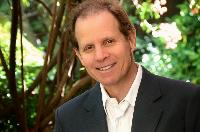There are many fascinating stories arising on the front lines of the awakening process, but Eban Alexander’s has to be one of the wilder ones. Great book! Terrifying to the rationalists!
Eban is a neurosurgeon. He earned his M.D. at Duke University in 1980, continued his residency there as well as at Mass General Hospital and Harvard, went on to explore neuroendocrinology and cerebrovascular surgery and spent fifteen years on the faculty of Harvard Medical school as an associate professor of surgery with a specialization in neurosurgery. As a practicing surgeon, he operated on countless patients, many with serious brain injuries and aliments. He is a scientist par excellence. ” I adored that simplicity-the absolute honesty and cleanness of science. I respected that it left no room for fantasy or for sloppy thinking. If a fact could be established as tangible and trustworthy, it was acceptted. If not, then it was rejected.”
And, in November of 2008, he suddenly came down with a rare brain illness.
If you are familiar with Jill Bolte Taylor’s “My Stroke of Insight” you might guess where this is going. But Eben’s story is even more mind-boggling. He developed a case of bacterial meningitis and was in a coma for seven days. His neocortex shut down totally. His attending physicians eventually told the family that he was never coming back, there had been too much trauma from the infection, which did not seem to respond to the various anti-biotics the medical team administered. But he did eventually awaken, rather suddenly, from the coma. And the story he returned with was shattering; shattering at least to his ‘sceptical-logical’ scientific mind.
In his out-of body travels he discovers the ‘underworld’, the ‘gate way’ and the ‘core’ and the absolute impossibility to describe his experiences in words or relate them to our earth bound ‘ordinary’ reality. “I know my biology, and while I am not a physicist, I’m no slouch at that, either. I know the difference between fantasy and reality, and I know that the experiences I am struggling to give you the vaguest, most completely unsatisfactory of, was the single most real experience of my life.”
“To say that there is still a chasm between our current scientific understanding of the universe and the truth as I saw it is a considerable understatement.” And, “perhaps the best way of conveying that part of that experience is to say I had a foretaste of another, larger kind of knowledge: one I believe human beings will be able to access in ever larger numbers in the future.”
“I saw the abundance of life throughout the countless universes, including some whose intelligence was advanced far beyond humanity. I saw that there are countless higher dimensions, but the only way to know these dimensions is to enter and experience them directly.”
Finally, “It is my belief that we are now facing a crucial time in our existence. We need to recover more of that larger knowledge while living here on earth, while our brains (including its left-side analytical parts) are fully functioning. Science—the science to which I’ve devoted so much of my life—doesn’t contradict what I learned up there. But far too many people believe, because certain members of the scientific community, who are pledged to the materialistic world view, have insisted again and again that science and spirituality cannot coexist.
They are mistaken…. The unconditional love and acceptance that I experienced on my journey is the single most important discovery I have ever made, or will ever make, and as hard as I know it’s going to be to unpack the other lessons I learned while there, I also know in my heart that sharing this basic message—-one so simple that most children readily accept it—is the most important task I have.”


